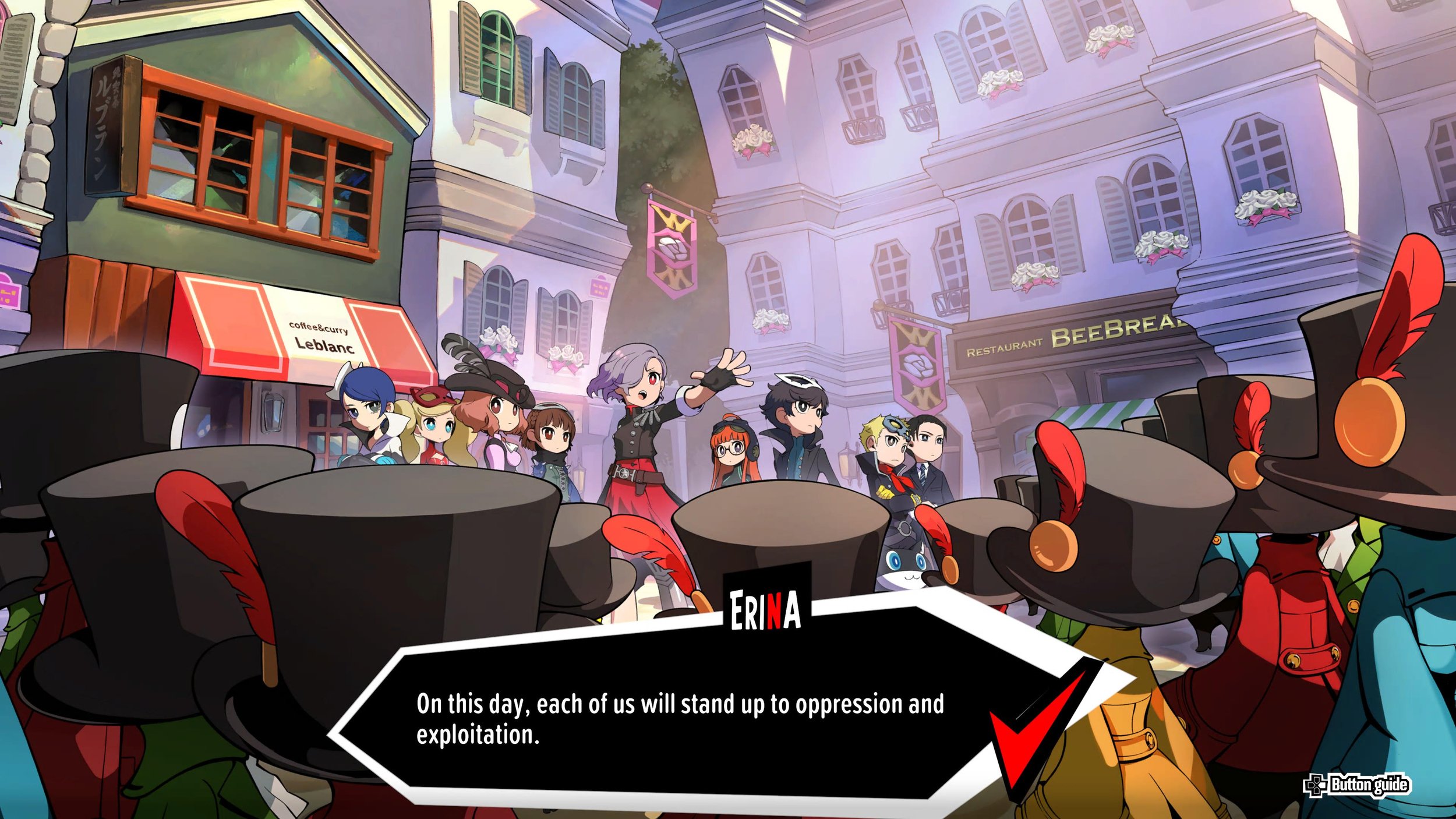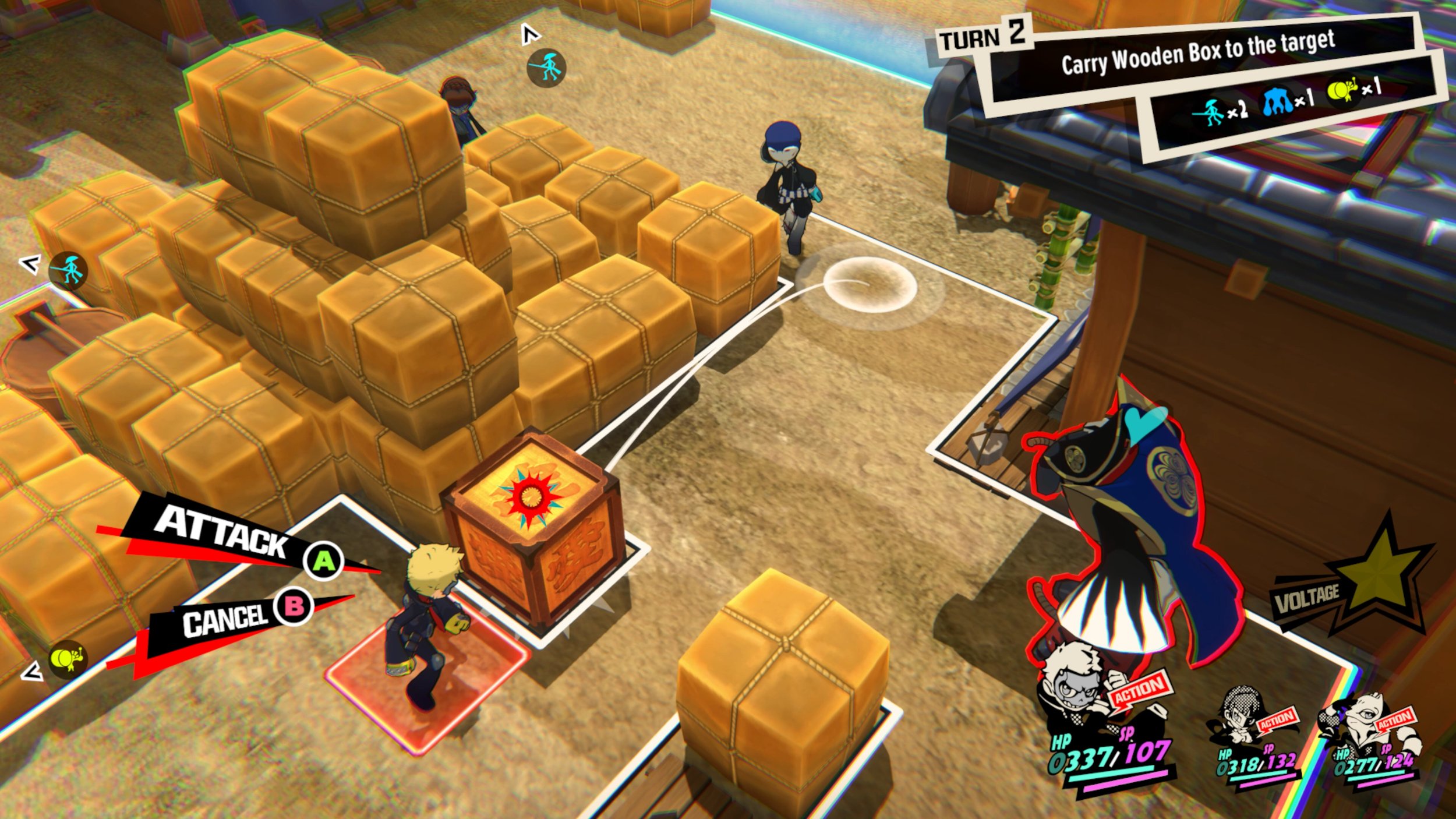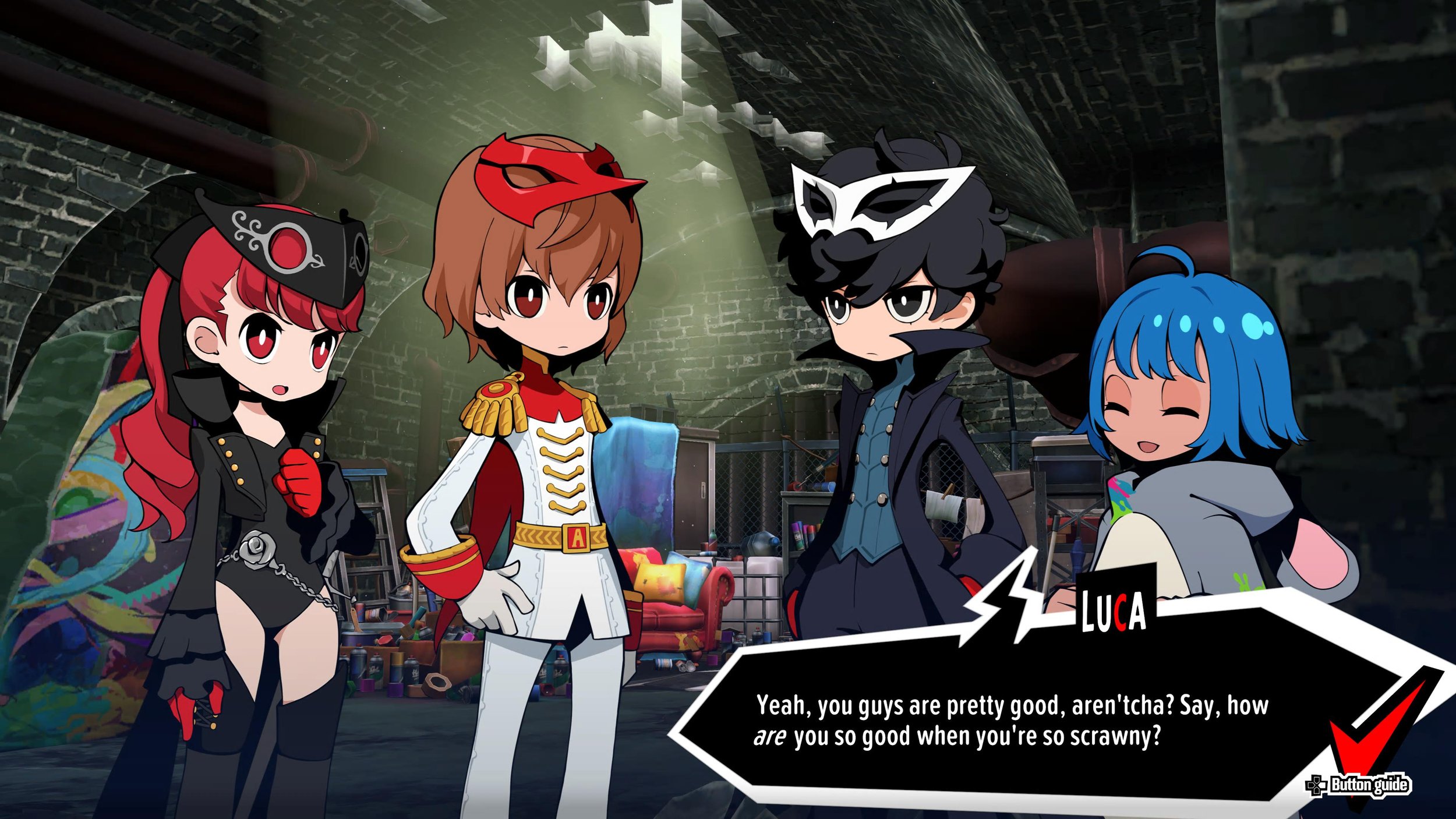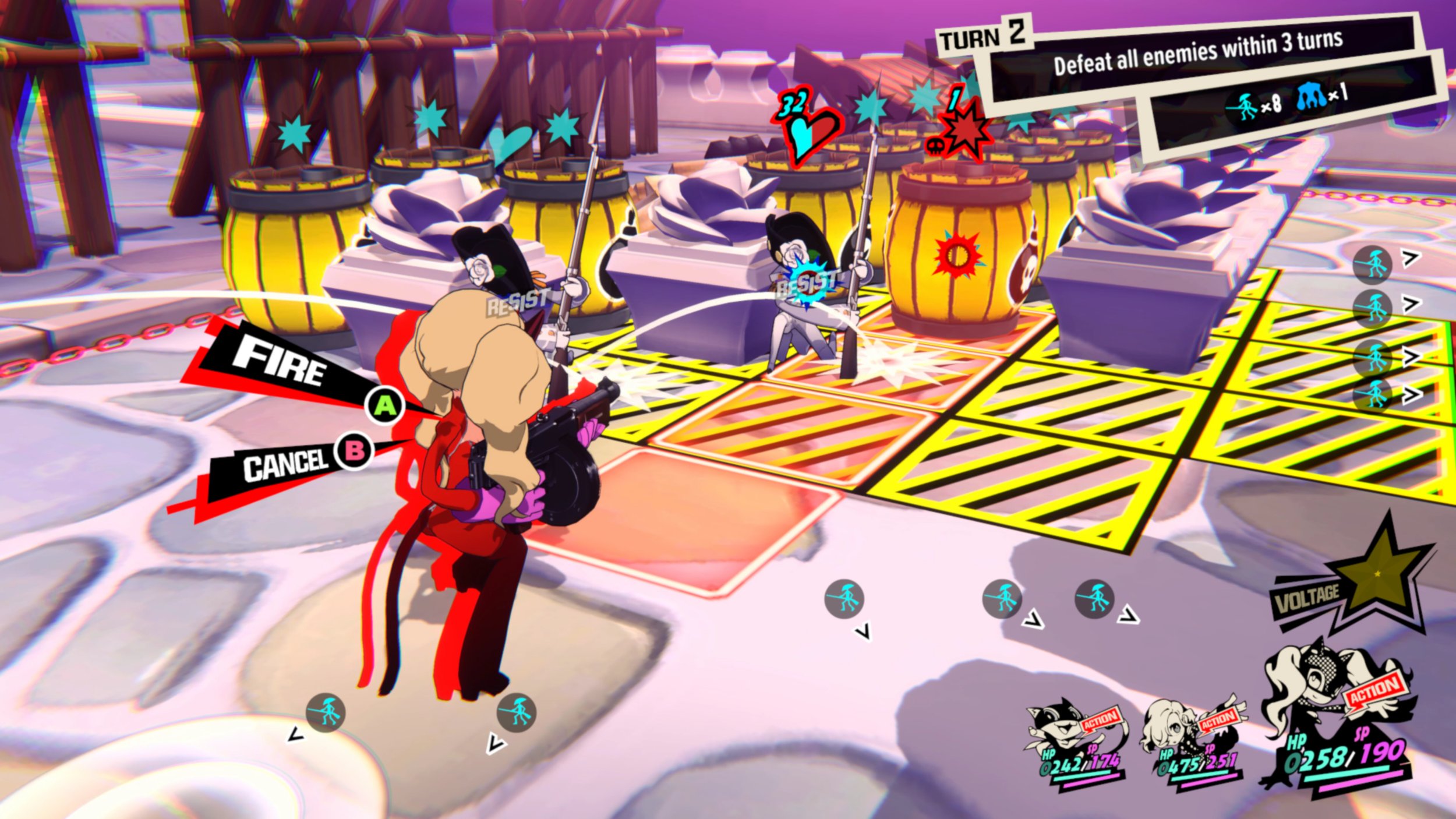Review | Persona 5 Tactica - The Kids Are Alright
The Persona series has always been political, no matter what any enclave of internet weirdos fetishising Japan’s culture might tell you. Hell, the second game saw you taking down the embodiment of Hitler, brought back to life by the spreading of disinformation. That isn’t to say the series has always been good at handling the hot potatoes it grabs. Mixed messages are frequent, the series has a nasty habit of vilifying queer people or making them the butt of a joke, and certain character development has been mishandled to the point of ruining their arcs.
All that said, the series has always been anti-establishment and distrustful of institutional rule. Persona 5 was maybe the height of this as it saw teenage kids making adults in positions of influence repent for their abuses of power. These adults varied from influential teachers, old guard artists, mob bosses, politicians, and even a god or two. The iconography of P5 also leaned into this, painting the persona-wielding teens as Robin Hood-like thieves, clad in clothes associated with those on the fringe of society. And yet despite all this, somehow Persona 5 Tactica is maybe Atlus’ most pointed political piece yet.
The game sees the Phantom Thieves, yet again, in a world of cognition, the catch this time is that they can’t get out. What’s more, each one of these Kingdoms is a different type of totalitarian state, ruled by a cruel dictator. Obviously, the Phantom Thieves can’t abide this and thus the game thrusts you into the role of violent revolutionary, overthrowing governments as you try to escape. It’s a little on the nose, but this setup facilitates plenty of interesting characters, plot twists and interactions
While Persona 5 Tactica’s story is an original thesis of bold ideas directed at The Man, the gameplay is more of an idea exchange cribbed from the notes of classmates. The game is turn-based like the previous mainline games, but goes down the tactics route, focusing on positioning to create something more akin to Final Fantasy Tactics, Tactics Ogre, or Triangle Strategy with a splash of XCOM cover-based tactics thrown in there too. The result is a system that focuses more on combat and situational puzzles for you to figure out, instead of RPG-level grinding, item management, and menu navigation. It suits the series well, as the pacing is much more evenly divided between short, visual novel-style interludes and brief combat encounters that allow you to save frequently, instead of huge palace dungeons, broken up by long stretch of life sim segments you get in the mainline games. There is something nice about a Persona game that can be played in short chunks and put down without losing a bunch of progress.
The combat itself is also a welcome change of pace, but one fans might be more divided on. The tactics system appears quite simplistic at first, as you only control three characters at once, and it follows a clear rhythm of; knock enemy out of cover with a melee, attacking with another character for a critical hit, use the extra turn granted by a critical hit to set up an All-Out-Attack in a triangle area of effect. By the time you get to the end of the first Kingdom and group back up with all the other Phantom Thieves, you might well be feeling a bit burnt out by the repetitive nature, but the ensuing Kingdoms layer some interesting mechanics to vary gameplay.
What is much less varied is the enemy type. This is a double-edged sword. While it can sometimes get repetitive killing yet another tank enemy with the same set-up again, it also allows you to get familiar with the enemies' mechanics. This means as the level design ramps up in complexity you get some really interesting combat encounters, where you have to exploit the weakness and juggle the strength of several enemy types.
All of this is to say, that Persona 5 Tactica’s combat is fine. By no means is it the best turn-based tactics system, but it’s engaging and enjoyable enough that it never distracts. Where the game really does stand out is with its characters and story. I’m not going to tell you yet again why it is nice hanging out with these characters again. If you have played Persona 5, P5 Royal, or P5 Strikers, you know the core crew of Joker, Mona, Futaba, Ryuji, Yusuke, Ann, Haru, and (best girl) Makoto are a lovable bunch of friends whose relationship feels real. However, It’s the new characters where Tactica excels. Erina, a rebel leader fighting to liberate a French-revolutionary proletariat put upon by a tyrannical bourgeoisie ruler, and Toshiro Kasukabe, an up-and-coming Diet member who has somehow been dragged into a Metaverse-like world along with the Thieves.
These two characters and how they play off each other and the Phantom Thieves is the best part of P5T. You’ll hear Erina pontificate on the realities of revolution and see Toshiro grill the Phantom Thieves on their methods of justice. At some point, the story almost becomes an introductory course into political sociology, but the levity of characters like Ryuji and the handy cliff-notes “Memos tab” help keep things clear.
The thing about Persona 5 Tactica’s story that makes it work so well is that is so short and focused that it never starts to lose its narrative thread or mix up its morals like the base game could over 90+ hours. Tactica is hyper-fixated on the role of governmental leaders and the common people’s ability to enforce change in the political realm. It dips into school politics and how that can shape a person, but there is no detour to take down a mob boss or fraudulent artists. It all feels cohesive and works towards a very satisfying conclusion that packs an emotional punch that you wouldn’t expect from a chibi-spin-off.
This is even more true for the DLC episode starring the protagonist, Goro Akechi, and Kaumi Yoshizawa. This six to eight-hour campaign doesn’t intersect with the main story and, admittedly, feels pricey at €20/£20/$20. However, it is some of the best writing in a recent Persona game as Atlus takes time to reflect on the role of artists in societal change while also highlighting the struggles of those on the outskirts of society. This DLC also features a surprisingly fleshed-out ground painting element to combat that completely changes how you go about playing the game. The culmination of this DLC is also maybe the most emotional and empowered I’ve felt playing an Atlus game, as it left me with this aching sadness for what the characters had been through paired with a hope for humanity right up there with the end of Nier: Automata.
Persona 5 Tactica might be smaller than a mainline game, but it packs no less of a punch. Its story has something important to say and speaks its mind in an impressively cohesive manner. It doesn’t seek to tackle as many issues as Persona 5 but what it does charge into, it blows out of the water. All this while the loveable character prevents the serious subject matter from ever becoming overbearing. Persona 5 Tactica is great. You should play it.











